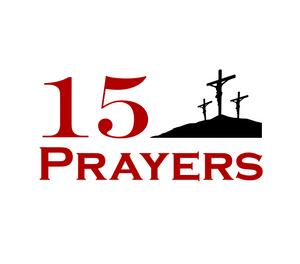
Book XIX
A review of the philosophical opinions regarding the Supreme Good, and a comparison of these opinions with the Christian belief regarding happiness.
Chapter 1
That Varro has made out that two hundred and eighty-eight different sects of philosophy might
be formed by the various opinions regarding the supreme good.Chapter 2
How Varro, by removing all the differences which do not form sects, but are merely secondary
questions, reaches three definitions of the chief good, of which we must choose one.Chapter 3
Which of the three leading opinions regarding the chief good should be preferred, according to
Varro, who follows Antiochus and the Old Academy.Chapter 4
What the Christians believe regarding the supreme good and evil, in opposition to the
philosophers, who have maintained that the supreme good is in themselves.Chapter 5
Of the social life, which, though most desirable, is frequently disturbed by many distresses.
Chapter 6
Of the error of human judgments when the truth is hidden.
Chapter 7
Of the diversity of languages, by which the intercourse of men is prevented; and of the misery of wars, even of those called just.
Chapter 8
That the friendship of good men cannot be securely rested in, so long as the dangers of this life force us to be anxious.
Chapter 9
Of the friendship of the holy angels, which men cannot be sure of in this life, owing to the deceit
of the demons who hold in bondage the worshippers of a plurality of gods.Chapter 10
The reward prepared for the saints after they have endured the trial of this life.
Chapter 11
Of the happiness of the eternal peace, which constitutes the end or true perfection of the
saints.Chapter 12
That even the fierceness of war and all the disquietude of men make towards this one end of peace, which every nature desires.
Chapter 13
Of the universal peace which the law of nature preserves through all disturbances, and by
which every one reaches his desert in a way regulated by the just Judge.Chapter 14
Of the order and law which obtain in heaven and earth, whereby it comes to pass that human society is served by those who rule it.
Chapter 15
Of the liberty proper to man’s nature, and the servitude introduced by sin,— a servitude in
which the man whose will is wicked is the slave of his own lust, though he is free so far as
regards other men.Chapter 16
Of equitable rule.
Chapter 17
What produces peace, and what discord, between the heavenly and earthly cities.
Chapter 18
How different the uncertainty of the New Academy is from the certainty of the Christian
faith.Chapter 19
Of the dress and habits of the Christian people.
Chapter 20
That the saints are in this life blessed in hope.
Chapter 21
Whether there ever was a Roman republic answering to the definitions of Scipio in Cicero’s
dialogue.Chapter 22
Whether the God whom the Christians serve is the true God to whom alone sacrifice ought to
be paid.Chapter 23
Porphyry’s account of the responses given by the oracles of the gods concerning Christ.
Chapter 24
The definition which must be given of a people and a republic, in order to vindicate the
assumption of these titles by the Romans and by other kingdoms.Chapter 25
That where there is no true religion there are no true virtues.
Chapter 26
Of the peace which is enjoyed by the people that are alienated from God, and the use made of
it by the people of God in the time of its pilgrimage.Chapter 27
That the peace of those who serve God cannot in this mortal life be apprehended in its perfection.
Chapter 28
The end of the wicked.

